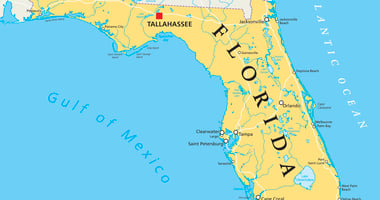APA Celebrates 175th Anniversary Today
 |
On October 16, 1844, 13 superintendents of U.S. institutions for people with mental illness came together in Philadelphia for a four-day meeting that led to the creation of the Association of Medical Superintendents of American Institutions for the Insane. In 1892, the Association’s name was changed to the American Medico-Psychological Association, and in 1921 it became the American Psychiatric Association.
“APA’s founders were determined to provide their patients with psychosocial care in a humane environment,” said APA President Bruce Schwartz, M.D. “They gathered to talk about the common challenges they faced and to advance treatments to improve the lives of their patients. In the 175 years since, APA and its members have worked to promote the highest quality of care for individuals with mental illness and substance use disorders.”
Over the past 175 years, APA has advanced the field of psychiatry by promoting research, advocating at the federal and state levels for equitable treatment of people with mental illness and substance use disorders, standing up for the rights of people with mental illness in the courts, and educating the public about mental illness and the effectiveness of treatment. Documents and other resources related to APA’s rich history are preserved in the Melvin Sabshin, M.D. Library & Archives at APA headquarters in Washington, D.C.
Highlights of APA’s history include the following:
- In 1917 the American Medico-Psychological Association, working with the National Committee for Mental Hygiene, created a formal system for classifying mental illnesses. This would later become the Diagnostic and Statistical Manual of Mental Disorders (DSM), first published in 1952. Further revisions, most recently in 2013 with DSM-5, reflect significant scientific advances in understanding and diagnosing mental illness.
- Throughout the 1970s and 1980s APA was instrumental in confronting the former Soviet Union over its use of psychiatric hospitals to detain political dissidents; APA has also advocated for civil rights of people with mental illness in Chile, Cuba, South Africa, and China.
- In 1981 American Psychiatric Publishing Inc., APA’s publishing company, was created to produce books, journals, and multimedia to provide cutting-edge information to medical students, residents, and practicing psychiatrists. (APA members may access the American Journal of Psychiatry from its beginnings as the American Journal of Insanity in 1844.)
- In 1992 APA created the American Psychiatric Association Foundation to advance mental health through educational programs in schools, workplaces, correctional institutions, and the broader community.
- In 2008 Congress passed the Mental Health Parity and Addiction Equity Act, requiring insurers to provide coverage for treatment of mental illness and substance use disorders on the same par as that provided for general medical and surgical treatments. APA was a leading advocate for this legislation and has continued to work on ensuring the law’s enforcement.
“We are proud to recognize our rich and deep history,” said APA CEO and Medical Director Saul Levin, M.D., M.P.A. “By exploring our past, we can see how far we have come as a medical organization and the great potential we have moving forward.”
For information on APA’s founding, see the Psychiatric News article “APA’s Origins Reflected Enlightened Thinking About Care for People With Mental Illness.”
Follow Psychiatric News on Twitter!
And check out the new Psychiatric News Brief on Alexa-enabled devices.
And check out the new Psychiatric News Brief on Alexa-enabled devices.





